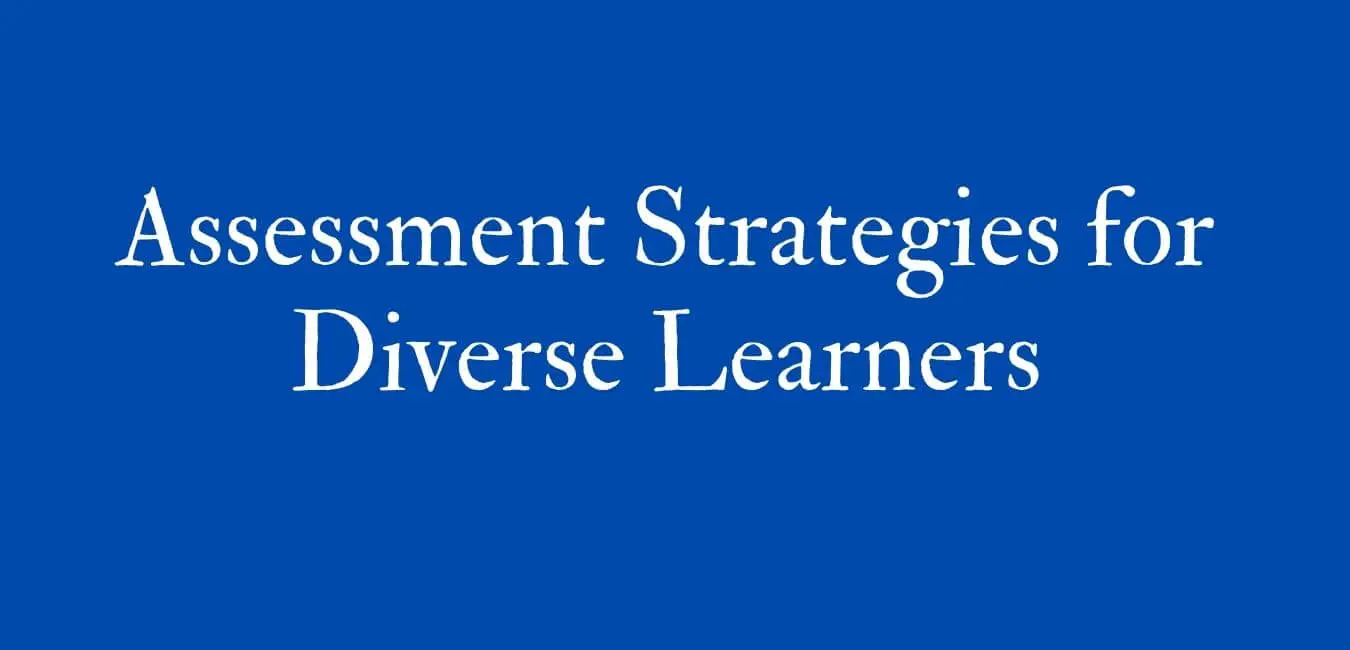Teachers play a critical role in implementing effective instruction in the classroom. They are responsible for designing lessons that meet the needs of their students and providing feedback to help students improve their learning. Teachers must also be able to differentiate instruction to meet the needs of all students and adjust their teaching methods as needed. To implement effective instruction, teachers must have a strong understanding of the material they are teaching, and be able to engage students in learning.
In this article, I will help you understand the role of a teacher in the implementation of effective instruction in the classroom. If you are ready, let’s get started!
Why is effective instruction important?
Many people might say that the purpose of education is to learn about academic subjects. While this is certainly one goal, another equally important goal is for students to develop the skills they need to be successful in life. One of the most important skills students can learn is how to learn. This involves being taught how to ask questions, think critically, and problem solve. In order to do this, students need effective instruction from teachers who are knowledgeable in their subject area and skilled at teaching.
Effective instruction is one of the most important aspects of education. Effective instruction means that it meets the needs of students and helps them learn. There are many reasons why effective instruction is important in education.
One reason is that it helps students learn the material that is being taught. When instruction is effective, it helps students understand what they are learning and makes it easier for them to remember the information.
Another reason why effective instruction is important is that it can help to reduce student achievement gaps. When all students receive effective instruction, it helps to level the playing field and gives all students a chance to succeed.
Additionally, when instruction is effective, it can help to improve student behavior and reduce disciplinary problems. Finally, when instruction is effective, it can help increase graduation rates and improve college readiness.
From the above, effective instruction is critical for every teachers’ success, therefore every element of effective instruction must be considered.
What is the role of teachers in implementing effective instruction?
The role of the teacher is essential when it comes to implementing effective instruction in the classroom. The following are some of the critical roles teachers play in effective instruction:
1. Teachers must be familiar with the material they are teaching.
When it comes to delivering effective instruction, one of the most important things that teachers can do is be familiar with the material they are teaching. This includes having a clear understanding of the concepts and ideas that will be covered, as well as having a strong grasp of the instructional strategies that will be used. If teachers are not familiar with the material, it can be difficult to provide an effective lesson.
One reason why familiarity with the material is so important is that it enables teachers to better answer students’ questions. When students are confused about a concept or don’t understand what is being asked of them, they often turn to their teacher for help. If the teacher doesn’t know the answer, it can be very frustrating for both parties.
Another reason why familiarity with the material is important is that it allows teachers to identify potential misconceptions that students may have. When students come to class with misunderstandings, it can be difficult for teachers to address them. If the teacher doesn’t know what misconceptions are present, he or she may not be able to effectively address them.
2. Teachers must be able to differentiate instruction.
Differentiating instruction is one of the most important skills a teacher can possess. When a teacher can differentiate instruction, it means that they can cater to the individual needs of each student in their class. This makes for more effective instruction, as all students can be challenged and learn at their own level.
There are many reasons why teachers must be able to differentiate instruction. One of the most important reasons is that it allows all students to be successful. In order for every student to learn, teachers must be able to adapt their lessons to meet the needs of every student in the classroom. This can be difficult when teaching a large class, but with careful planning, it can be done.
Another reason why differentiation is so important is that it helps ensure that all students are engaged in learning. If all students were able to be challenged equally, then they would not be bored or disengaged. They will instead be motivated to learn and attain success.
One of the main reasons why teachers must differentiate instruction is that it allows for individualized learning. This is important because it allows students to learn at their own pace, which will help them develop more quickly. In addition, this type of instruction also helps ensure that students are more engaged and interested in learning.
3. Teachers must be able to create a positive learning environment.
Teachers play a significant role in the development of their students. They are entrusted with the responsibility of teaching and shaping young minds. It is essential, therefore, that teachers be able to create a positive learning environment in order to facilitate effective instruction.
A positive learning environment is one in which students feel safe and respected. In such an environment, students are more likely to take risks and participate in class discussions. They are also more likely to be engaged in their learning.
A negative learning environment, on the other hand, can have disastrous consequences. Students who feel unsafe or unsupported will often disengage from class activities. This can lead to them falling behind in their studies and eventually dropping out of school altogether.
It is therefore imperative that teachers work hard to create a positive learning environment in their classrooms.
4. Teachers must set expectations and establish clear guidelines for instruction.
One of the most important aspects of effective instruction is setting clear expectations. Guidelines for instruction help to ensure that all students are receiving the same level of instruction and that teachers are able to effectively meet the needs of all students in their classrooms. There are a few reasons why it is crucial for teachers to be able to establish clear guidelines for instruction.
One reason is that it allows teachers to be more deliberate in their planning. When teachers know what is expected of them, they can plan lessons that specifically target the needs of their students. Additionally, when expectations are clear, both teachers and students are able to better understand what is expected of them, and this can lead to improved student achievement. Finally, when expectations are clearly communicated, it helps to create a positive learning environment in which all students feel supported and can succeed.
5. Teachers must plan and organize instruction.
Planning instruction is essential for teachers in order to ensure that their students are learning. Good planning results in effective instruction that can meet the needs of all students. It is important for teachers to have a clear idea of what they want students to learn and how they plan to help them achieve their goals.
Teachers must also be well-organized in order to ensure that everything runs smoothly during class. Planning and organizing instruction requires time and effort, but it is well worth the payoff when teachers see their students thrive in the classroom.
6. Teachers must implement instruction effectively.
Teachers must implement instruction effectively in order for students to learn. Effective instruction involves a planned and prepared lesson that is delivered with fidelity. This means that the teacher follows the plan as written, using the allotted time to cover all of the objectives. Additionally, effective instruction engages students in learning activities that promote critical thinking and problem-solving.
In order for students to learn, teachers must effectively implement instruction. This means that not only must the lesson be planned and prepared for, but it must also be delivered in a way that engages students and helps them understand the material.
Some factors that contribute to effective instruction are using clear and concise language, providing examples, and checking for understanding frequently. It is also important to be aware of different learning styles and accommodate them whenever possible. By following these tips, teachers can ensure that their lessons are being implemented effectively and that students are learning what they need to know.
7. Teachers must modify instruction.
In order for students to be successful, teachers must be able to modify instruction. This may mean adapting their teaching methods to better meet the needs of their students or providing different levels of support. Sometimes, this also includes adjusting the curriculum to ensure all students are able to learn. Teachers must be able to make these changes quickly and effectively in order to ensure all students have an opportunity to learn.
One reason why teachers must modify instruction is that not all students learn in the same way. For example, some students may need more visual aids while others may need more hands-on activities. In addition, some students may require more or less time for instruction than others. It is important for teachers to be able to differentiate instruction in order to meet the needs of all learners.
Another reason why the modification is necessary is that the curriculum can often be challenging for some students. For example, some students may have a learning disability that affects their ability to understand the material. Or, they may not be able to process the information quickly and effectively in order to achieve success on the test.
In addition, different teachers will use different techniques for instruction. Some teachers may have a more traditional approach to teaching that involves lectures and reading. Other teachers may use less traditional methods such as demonstration, discussion, and active participation in order to help the students understand the material.
Even children with similar backgrounds can learn at different rates. Children from the same classroom can learn at different rates. Some children may be able to absorb information better than others, due to their attention span, or because of their learning process.
8. Teachers must provide support by offering guidance and assistance as needed.
One of the most important aspects of effective instruction is providing guidance and assistance when needed. Teachers must be able to offer help when it is needed, in order for students to be successful. Often, this means being there for students when they need it the most. It can also mean stepping in to offer direction or instruction when a student appears to be lost or confused.
There are many reasons why teachers must provide guidance and assistance during instruction. One reason is that students may not always understand what is being asked of them. In these cases, it is up to the teacher to provide clarification and help the student move forward. Additionally, some students may struggle with certain concepts or tasks and require more help than others in order to be successful. Teachers must be prepared to offer this support on an individual basis.
9. Teachers must monitor progress by checking on student performance and offering feedback.
Teachers must constantly monitor the progress of their students in order to ensure that they are learning and meeting expectations. Offering feedback during effective instruction is one of the best ways to help students make progress. Checking student performance allows teachers to identify any gaps in learning and helps them to adapt their instruction accordingly. In order for feedback to be effective, it must be timely, specific, and actionable. Teachers should also provide students with feedback on their own progress so that they can track their own progress and set goals for themselves.
10. Teachers must celebrate success by recognizing students’ achievements.
Teachers must celebrate success in their classrooms. When students are successful, they feel a sense of accomplishment, and this motivates them to continue working hard. Celebrating success also reinforces the concepts that have been taught.
One way to celebrate success is to give students positive reinforcement. This can be done in many ways, such as through verbal praise, stickers, or other rewards. It is important to give students specific feedback about what they did well. For example, you might say, “I liked the way you solved that problem” or “You did a great job reading aloud.”
Another way to celebrate success is to have a class party. You can choose a celebration theme, such as the Olympics, beach party, or carnival. The party can include fun activities like relay races or water balloon fights.
11. Teachers must reflect and revise practices, methods, and techniques used for effective instruction.
Teachers must reflect and revise on what went right and what didn’t after each lesson in order to be effective instructors. This is the only way to improve teaching practices, identify areas of weakness, and make necessary changes for the following day’s class. Reflection allows teachers to take a step back from their instruction and analyze what worked well and what needs improvement. It also provides an opportunity to reflect on how students responded to the lesson. Revision involves making changes to future lessons based on the reflection process. Teachers who engage in reflection and revision are more likely to deliver effective instruction.
Check out our blog page for more helpful articles.
Conclusion
The role of the teacher in implementing instruction is critical. Teachers must be able to facilitate learning and guide students to mastery of the content. In order to do this, they must be knowledgeable about the material they are teaching as well as effective instructional strategies. They must also be able to assess student learning and make adjustments to their instruction as needed. The more the teacher learns about their subject and the techniques for teaching it, the more effective they can be in implementing instruction.

















